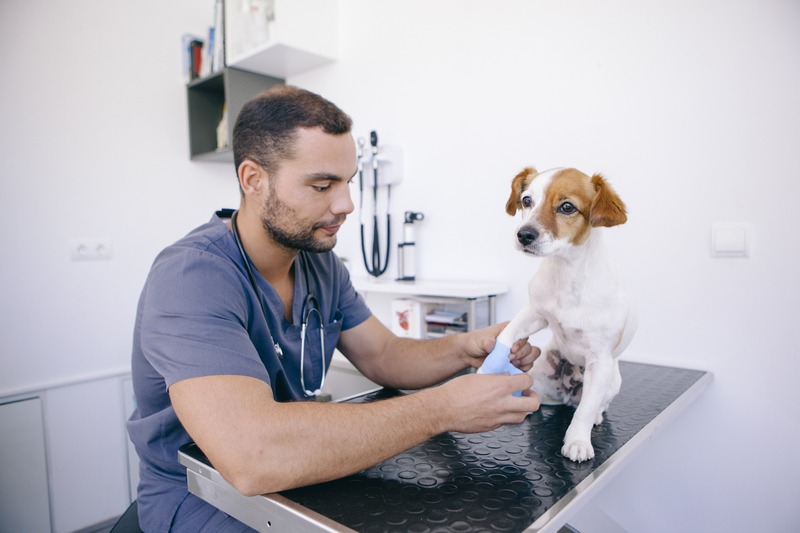When it comes to our furry friends, their health is as important to us as our own. We see them not just as pets but as members of our family, and so we strive to give them the best care possible. Among the various health concerns that can affect our pets, hyperthyroidism is a condition that particularly affects older cats, though it can appear in dogs as well. Coupled with the undeniable importance of maintaining good dental hygiene, a question arises: Is pet dental work safe for pets with hyperthyroidism? In this article, we’ll address this concern, laying out the facts you need to know to make informed decisions about your pet’s dental health when they’re dealing with hyperthyroidism.
Understanding Hyperthyroidism in Pets
Before we delve into the specifics of dental care under the shadow of hyperthyroidism, let’s get a handle on what this condition entails. Hyperthyroidism is primarily seen in middle-aged to older cats and occasionally in dogs. This condition is caused by an excessive production of thyroid hormone from the thyroid gland. Symptoms often include:
-
Weight loss despite a good or increased appetite
-
Increased heart rate
-
Excessive thirst and urination
-
Hyperactivity or irritability
-
Vomiting or diarrhea
-
A noticeable lump in the neck
In addition, there are specific symptoms of hyperthyroidism in cats and dogs that may be recognizable, such as a greasy or unkempt coat, increased shedding, panting, and a change in vocalization habits.
The Significance of Pet Dental Health
Just like in humans, dental health is a critical component of overall health for pets. Neglected dental care can lead to a variety of issues, including bad breath, gum disease, tooth loss, and in severe cases, bacteria from the mouth can enter the bloodstream, leading to systemic infections affecting vital organs. Frequent dental check-ups and cleanings are essential preventive measures that can help maintain your pet’s oral hygiene and overall well-being. As part of their routine wellness plan, a puppy checkup often includes an examination of the mouth to ensure their teeth are developing correctly and no early signs of dental issues are present.
Is Dental Work Safe for Pets with Hyperthyroidism?
Now, to the crux of the matter—dental work for pets with hyperthyroidism. Here’s what you need to know: Firstly, veterinary professionals typically recommend that any underlying hyperthyroid condition be managed or treated before elective dental procedures are performed. The reason is that untreated hyperthyroidism can pose added risks during anesthesia due to the strain the condition places on the heart and other organs.
This management may involve medication to control thyroid hormone levels or other treatments, such as radioactive iodine therapy, which can be curative. Once the condition is under control and your vet has given the green light, dental work can usually proceed safely.
Ensuring Safety During Dental Procedures
If your pet has hyperthyroidism and requires dental work, there are safety measures and considerations to be aware of:
-
Pre-Procedure Bloodwork: This is critical to assess the health of your pet’s liver, kidneys, and thyroid function so that any potential anesthetic risk is minimized.
-
Cardiac Evaluation: Due to the increased risk of heart disease in hyperthyroid pets, a thorough heart examination is essential. Additional testing like x-rays or an echocardiogram may be recommended.
-
Anesthesia Protocol: Anesthetics and procedures are selected and tailored to minimize risk for hyperthyroid patients. This may include avoiding certain drugs or using lower dosages.
-
Monitoring During the Procedure: Vital signs must be carefully monitored by vet technicians throughout the procedure to ensure any changes are addressed immediately.
-
Aftercare: Post-procedure care is crucial, with a focus on managing pain, offering a calm recovery environment, and close observation for any adverse effects.
When it comes to dental care in LakeCross Veterinary, these guidelines are taken seriously to ensure the utmost safety and well-being of all pets during dental procedures.
Complications to Watch For
As with any medical procedure, there are potential complications to be mindful of, notably:
-
Anesthetic risks, especially for pets with pre-existing conditions like hyperthyroidism.
-
Postoperative bleeding or infection.
-
Reaction to medications or pain relief given during the procedure.
-
Stress from the experience can exacerbate hyperthyroidism symptoms.
It’s crucial that your pet is monitored for any signs of complications after the dental work and that you maintain good communication with your vet.
Home Dental Care for Hyperthyroid Pets
In addition to professional dental work, there’s a lot you can do at home to care for your pet’s dental health, such as:
-
Regular brushing with pet-safe toothpaste
-
Providing specially formulated dental diets or treats
-
Using dental toys that help clean the teeth through chewing
-
Checking your pet’s mouth regularly for signs of dental disease
Taking these steps can help reduce the frequency of professional cleanings needed, which can be particularly beneficial for pets with hyperthyroidism.
Final Thoughts
Caring for a pet with hyperthyroidism requires extra vigilance, particularly when it comes to dental work. However, with the right preparation and professional oversight, dental procedures can be carried out safely, enhancing your pet’s quality of life. Remember to work closely with your vet, follow their guidance, and never overlook the importance of oral health as part of your pet’s overall care routine. An investment in good dental care is an investment in the happiness and longevity of your beloved companion


